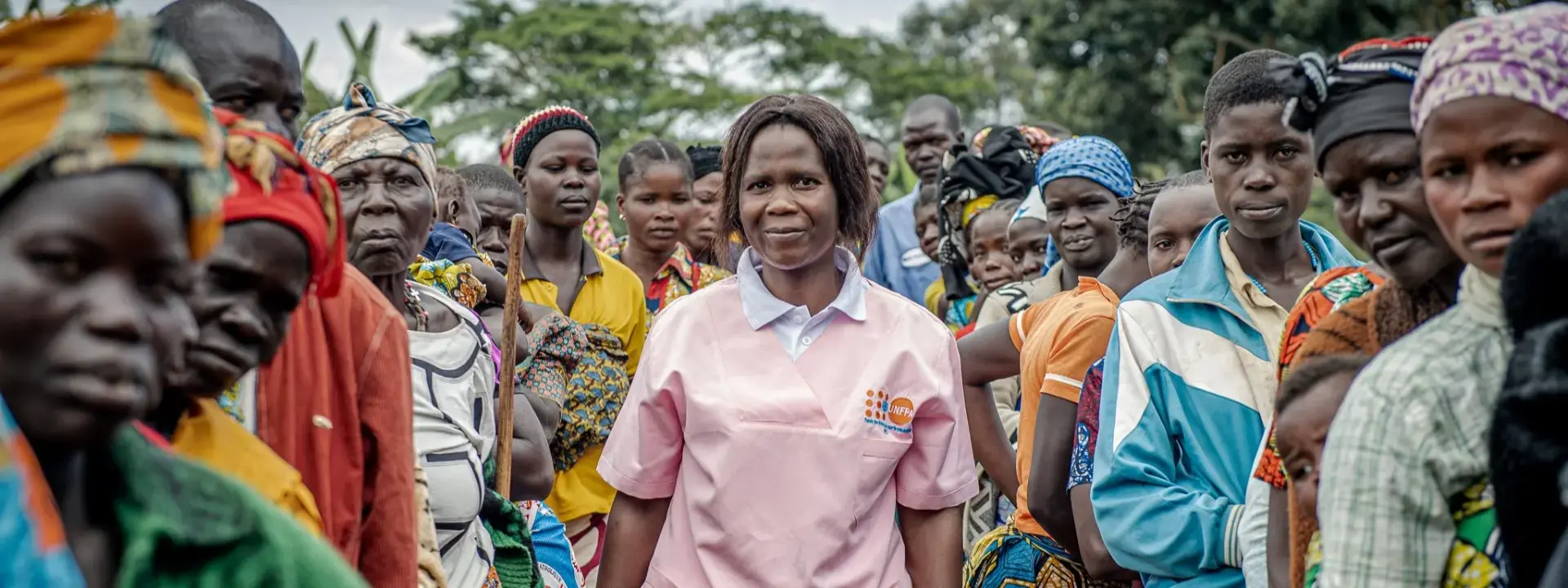When midwives are well trained, adequate in number, and appropriately supported to provide a better quality of care, they can avert about two-thirds of preventable maternal and newborn deaths. They could also deliver 87 per cent of all essential sexual, reproductive, maternal and newborn health services.
Yet only 42 per cent of people with midwifery skills work in the 73 countries where more than 90 per cent of all maternal and newborn deaths and stillbirths occur. In many underserved communities with high maternal and neonatal deaths, significant gaps remain in the availability of these essential health workers, falling well short of the World Health Organization’s minimum recommendation of 4.2 midwives per 1,000 people.
Midwives – and people with midwifery skills – are the main caregivers for women and their newborns during pregnancy, labour, childbirth and in the post-delivery period. A well-trained midwife can provide comprehensive sexual and reproductive health information and services, including antenatal care, safe delivery care, and post-partum/post-natal care.
Midwives also provide family planning counselling and services, and they can perform breast and cervical cancer screenings. If authorized by their countries, they can perform basic emergency obstetric care, and in humanitarian crises, midwives can help implement the Minimum Initial Services Package for reproductive health care services.
Midwives also do much to advance women’s and girls’ rights. By providing information and counselling, they can help prevent female genital mutilation (FGM); they can offer support and assistance to survivors of gender-based violence; and they can provide reproductive health services to adolescents, who are often denied access to these services at great cost to their health and rights.
The 2021 State of the World’s Midwifery report affirms that if we increase the number of midwives and the quality of care they provide, we will save an estimated 4.3 million lives a year by 2035. Universal coverage of midwife-delivered interventions by 2035 would avert 67 per cent of maternal deaths. Such achievements depend on midwives gaining better education and training, along with comprehensive and supportive workplace regulation. They must have a greater role in professional leadership and governance, and scope to use their unique experience to drive advancements in health policies and service delivery.
Respectful care
Disrespectful maternity care is one of the root causes of maternal deaths. Making health systems generally more women- and girl-friendly includes ensuring the availability of products, providers and places of care. In the past few years, we have provided technical support to integrate respectful maternity care into national maternal health guidelines in Ethiopia, Kenya and Zambia and into nurse and midwifery training in the United Republic of Tanzania and Zambia. To build the capacity of countries during the COVID-19 pandemic, ESARO (in partnership with WHO) conducted virtual training to improve the quality of maternity care and set up a virtual e-Learning and m-Learning platform as part of our mission to strengthen non-discriminatory, people-centred approaches to deliver integrated quality information and services across the life cycle.
UNFPA’s response
UNFPA works to scale up quality midwifery education, policies and services. UNFPA and its partners also work to strengthen midwifery training curricula, institutions, associations and regulations.
UNFPA focuses on four key areas: strengthening competency-based midwifery training; developing strong regulatory mechanisms to ensure quality services; raising the voices of midwives by establishing and strengthening midwifery associations; and advocating for increased investments in midwifery services. UNFPA also works to create a supportive environment for midwives by advocating for adequate workforce policies for midwives.
UNFPA has helped train midwives; provided books, equipment and training materials to midwifery schools; trained midwifery tutors; and supported national and sub-national midwifery associations and their branches. UNFPA also works closely with national governments to ensure that midwifery is a well-regulated, autonomous profession with midwives enjoying a clear title and properly defined scope of practice. Many countries now follow a competency-based midwifery curriculum that is based on global standards. In addition, UNFPA has been supporting higher education programmes for midwives. Bachelor’s degree programmes have been launched in Zambia, and midwifery master’s degree programmes have been introduced in Ethiopia, Uganda and Zambia.
UNFPA also focuses on deploying midwives following the completion of their education and training. For example, in Ethiopia, UNFPA recently supported the deployment of over 4,400 midwives.
Today, support for midwifery services is growing. Midwifery is strongly emphasized in the UN Secretary-General’s Global Strategy for Women’s Children’s and Adolescent’s Health and the Africa Health Strategy, and an increasing number of governments have committed to investing in midwifery care. Each year, UNFPA works with ministries of health and national midwifery associations to celebrate the International Day of the Midwife on 5 May, highlighting the importance of midwives everywhere.


